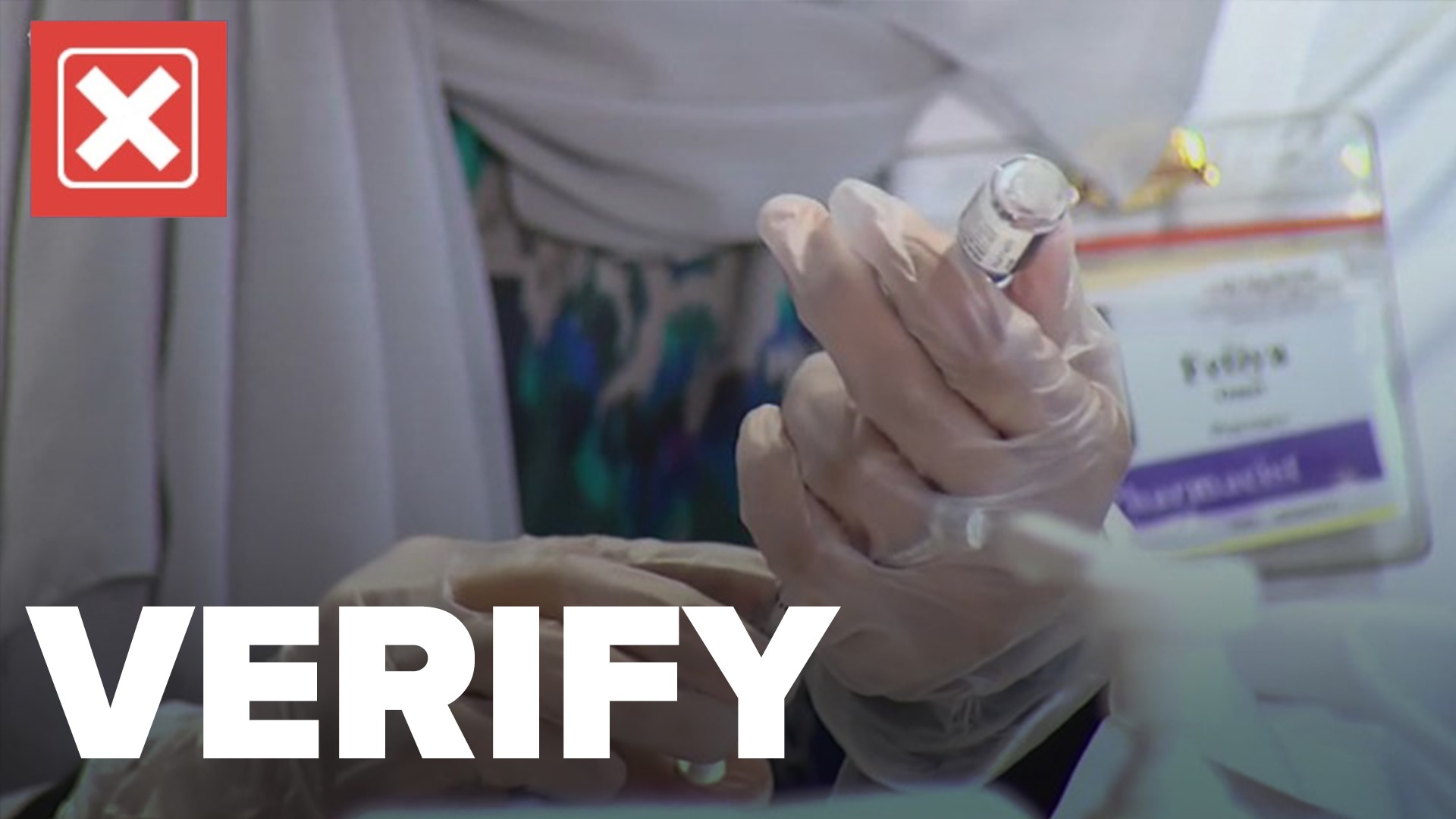LITTLE ROCK, Ark. — There have been plenty of claims spreading about the use of monoclonal antibodies for those who have tested positive for COVID-19. But who can get them and when can you get them?
A VERIFY viewer wanted to know: "Is it true that only patients in the hospital with COVID-19 can receive the monoclonal COVID-19 Infusion? Or can you get it if you test positive with symptoms but are not admitted to the hospital?"
To answer these questions, we turned to our sources, the Arkansas Department of Health, the Food and Drug Administration, and Dr. Patrizia Cavazzoni.
They said monoclonal antibodies are not used for treating severe COVID. Instead, they should be given as soon as possible after you test positive, to prevent complications.
The FDA has granted emergency authorization for several antibody treatments, used "for the treatment of mild-to-moderate COVID-19 in adults and pediatric patients (12 years of age and older weighing at least 40 kilograms [about 88 pounds]) with positive results of direct SARS-CoV-2 viral testing and who are at high risk for progression to severe COVID-19, including hospitalization or death.”
The Arkansas Department of Health explains these antibodies are laboratory-made proteins that mimic your immune system's natural virus-fighting abilities.
On their website, they say non-hospitalized patients with mild to moderate symptoms can get the treatment up to ten days after symptom onset... if they have any of these high-risk factors:
- Older than age 65
- Obesity BMI>25
- Pregnancy
- Diabetes, any immunosuppression, and heart or lung disease, or chronic kidney disease
- Sickle cell disease
- Neurodevelopmental disorders (for example, cerebral palsy)
- Having a medical-related technological dependence (for example, tracheostomy, gastrostomy, or positive pressure ventilation (not related to COVID-19.)
Other medical conditions or factors (for example, race or ethnicity) may also place individual patients at high risk for progression to severe COVID-19
The FDA has also authorized this treatment in high-risk people who have been exposed to the virus, even if they haven't tested positive yet.
These antibodies are not approved for use in patients whose covid case has already gotten bad enough to need hospitalization or oxygen treatment.
Dr. Cavazzoni, director of the FDA's Center for Drug Evaluation and Research said, "With the authorization of this monoclonal antibody treatment, we are providing another option to help keep high-risk patients with COVID-19 out of the hospital."
So we can verify, this claim is false. Hospitalized patients should not receive the monoclonal antibody treatment— instead, it should be used before a case gets that serious.

